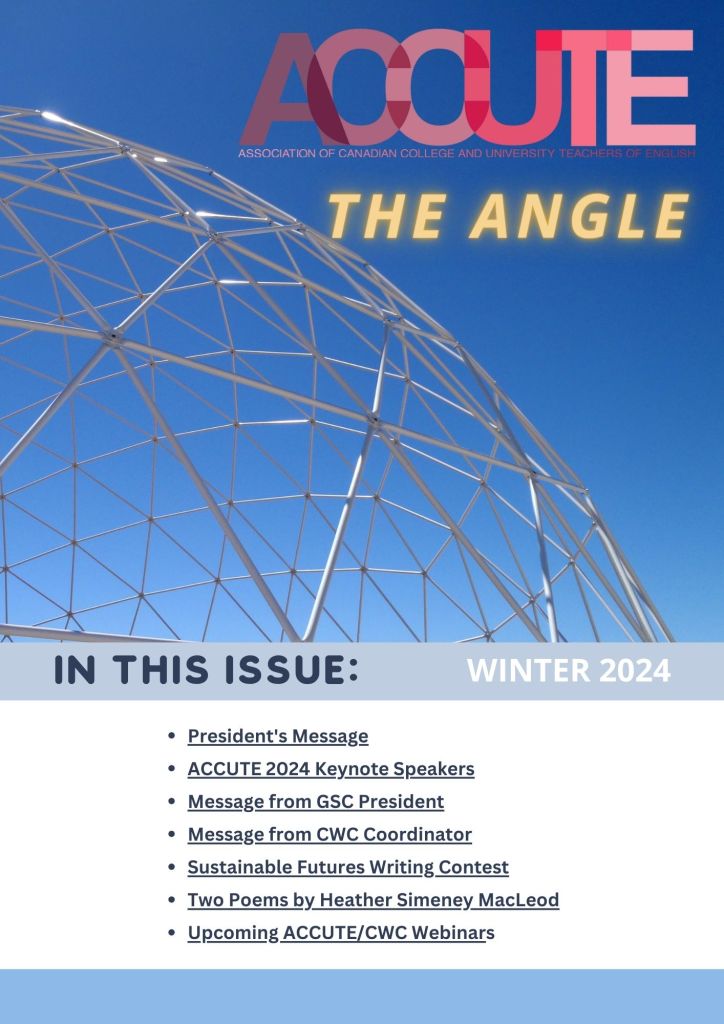CFP (edited collection): New and Unusual Ways of Writing Lives
I am in the process of putting together a proposed book titled New and Unusual Ways of Writing Lives. This is an edited collection that aims at being a “how to” book for students and teachers and interested practitioners, and a guide for use in higher education.
Currently I am seeking a number of academics and professional practioners in the field who might like to send me an abstract for consideration for inclusion in the book.
All abstracts should be in English, in Times New Roman point 12, and be submitted as a word document. Please keep in mind that your essay-chapter will be written from your abstract. Your abstracts will carry the same title as your essay-chapter.
Abstracts should:
- fit a work intended as a “how to” book that also serves as a guide to teaching new and unusual ways of writing lives in the higher education sector;
- be about an entirely new and unusual form, or a new or unusual hybridisation, or a new and unusual approach to a form that is relatively new or unusual, or that may have may have already appeared to some small degree at some time, and that you yourself or some other writer employs or adapts in own writing;
- indicate that in your essay you will analyse, discuss, or explain what makes the form you are proposing unusual or new, and mention that you will also give some practical tips on how you or some other writer uses this for in their writing;
- say that in your essay you will discuss what makes the form you are proposing unusual and/or new, and how it differs from that of others;
- mention a couple of literary theorists/critical analysts or other peoples’ works (not too much though, and not too wordy so that it suits both higher education students and teachers) that may relate in some way to the form you are proposing as new and unusual, and that may also help users towards gaining some understanding of that form;
- mention that, when writing your chapter essay, your intention is to add to the bottom of your essay-chapter, three exercises that arise from your chapter—exercises that could be helpful to students who might wish to adopt or adapt the form in their own work; and
- mention that in your essay-chapter, you will add a suggested list for further reading, a list that writers/students/teachers may find helpful in some way.
Some suggestions: new or unusual ways of writing can include, though are not by any means limited to, various forms such as, for instance, blogs, asylum-seeker or refugee zines, collections of items, obituaries, face-book entries, psychogeogaphy, hypnography, wall writing, and so on…
Abstracts can be up to 550 words outside the title and (if included) the three exercises and the suggested list for further reading.
On a separate paper attached to your abstract, please provide you full name and contact details, your affiliation, and all your qualifications, as well as a short bio, and a full list of all your publications including those unpublished, in progress, in press, and published.
Date due: as soon you like, but no later than 28 January 2017.
Email: Jo.Parnell@newcastle.edu.au annette.parnell@newcastle.edu.au
Dr Jo Parnell
Conjoint Research Fellow
Faculty of Education and Arts
School of Humanities and Social Science
University of Newcastle, Australia
Reviewer (occasional): Auto/ Fiction International
Member: International Autobiography Association (IABA World)
IABA European Chapter
IABA Asia-Pacific Chapter
British Sociological Association
PCA/ ACA (Popular Culture Association/ American Culture Association)
Oral History NSW Inc., Australia
Blog site: http://www.wordsforsam1.wordpress.com/
Categories: Non ACCUTE CFPs, Uncategorized



